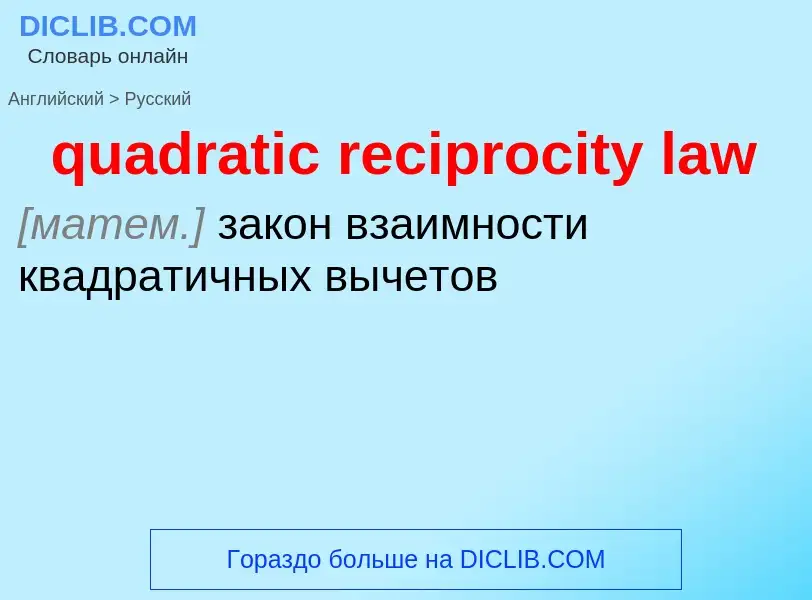Traducción y análisis de palabras por inteligencia artificial ChatGPT
En esta página puede obtener un análisis detallado de una palabra o frase, producido utilizando la mejor tecnología de inteligencia artificial hasta la fecha:
- cómo se usa la palabra
- frecuencia de uso
- se utiliza con más frecuencia en el habla oral o escrita
- opciones de traducción
- ejemplos de uso (varias frases con traducción)
- etimología
quadratic reciprocity law - traducción al ruso
математика
квадратичная взаимность
Definición
Wikipedia

In number theory, the law of quadratic reciprocity is a theorem about modular arithmetic that gives conditions for the solvability of quadratic equations modulo prime numbers. Due to its subtlety, it has many formulations, but the most standard statement is:
This law, together with its supplements, allows the easy calculation of any Legendre symbol, making it possible to determine whether there is an integer solution for any quadratic equation of the form for an odd prime ; that is, to determine the "perfect squares" modulo . However, this is a non-constructive result: it gives no help at all for finding a specific solution; for this, other methods are required. For example, in the case using Euler's criterion one can give an explicit formula for the "square roots" modulo of a quadratic residue , namely,
indeed,
This formula only works if it is known in advance that is a quadratic residue, which can be checked using the law of quadratic reciprocity.
The quadratic reciprocity theorem was conjectured by Euler and Legendre and first proved by Gauss, who referred to it as the "fundamental theorem" in his Disquisitiones Arithmeticae and his papers, writing
- The fundamental theorem must certainly be regarded as one of the most elegant of its type. (Art. 151)
Privately, Gauss referred to it as the "golden theorem". He published six proofs for it, and two more were found in his posthumous papers. There are now over 240 published proofs. The shortest known proof is included below, together with short proofs of the law's supplements (the Legendre symbols of −1 and 2).
Generalizing the reciprocity law to higher powers has been a leading problem in mathematics, and has been crucial to the development of much of the machinery of modern algebra, number theory, and algebraic geometry, culminating in Artin reciprocity, class field theory, and the Langlands program.


